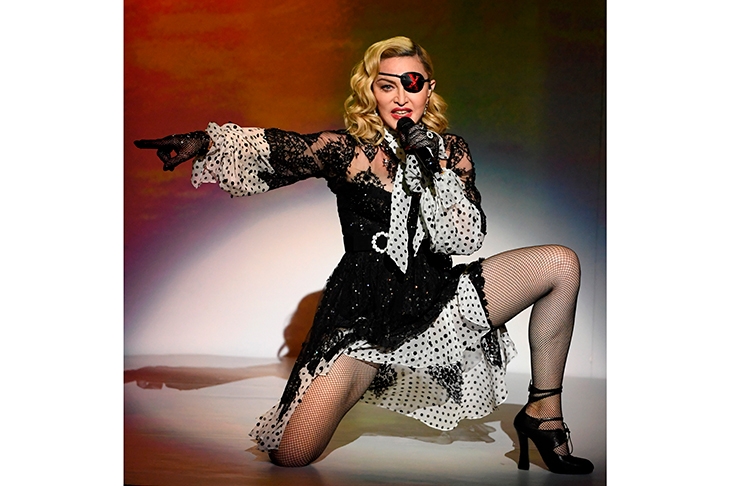Recently I was listening to Lieutenant-General Tyrone Urch, the army’s Commander Home Command, being interviewed by Martha Kearney on Today. I cannot remember what he was talking about, because I had become quite agitated by the officer’s insistence on using Ms Kearney’s name in every response: ‘Good morning, Martha… It absolutely is, Martha… The things the military is able to do, Martha… I’m no biochemist, Martha…’ On and on it went, this patronising and repeated use of the interviewer’s name.
But what rankled more than the repetition was that Lieutenant-General Urch was using Ms Kearney’s first name. Did Ms Kearney tell Lieutenant-General Urch that it was all right for him to use ‘Martha’? No chance. How would the mighty Commander Home Command have felt if Ms Kearney had insisted on using his first name?
Sadly, it is not unusual these days for someone like Tyrone to use a person’s first name without permission. Using surnames is regarded as antiquated and far too deferential for our egalitarian times. From medical professionals to schoolteachers to salesmen, people now feel the need to address one another by first names. It is as if calling someone by their surname risks an impression of arch formality, and insisting on being referred to by one’s surname feels like pomposity. In the workplace and the legislature, even in hospitals and schools, the surname is as outmoded as wearing a tie or smoking a pipe. In fact, you are only likely to hear your surname in the more traditional quarters of the hospitality and retail industries, or in court. In effect, the surname, as a spoken form of address, is all but dead.
Unlike Tyrone, I always do my best to address people by their surnames. When I interview the elderly (which, since I am a historian, is often), I make sure to do so. For the most part — and as far as I can tell — this gives no end of delight. But on one occasion I was interviewing a distinguished former army officer who had commanded the post-war British War Crimes Investigation Unit. He insisted that I called him Ian. Sorry, but it just didn’t seem right.
Surnames are useful things. They provide a vital barrier between speakers, and, contrary to the culture of false chumminess adopted by the likes of Tyrone, barriers are very good things indeed. They show that the relationship is going to be professional and impersonal. William Hague, when he was leader of the opposition, was dead right when he refused to surrender to the then prime minister’s entreaties to call him Tony, because he wanted to address the job and not the man.
The problem with using first names outside the confines of family and friendship is that it creates false senses both of intimacy and social equivalence. We are deceiving ourselves when we pretend that the people who unblock our U-bends, draw up our tax returns or measure our inside legs are our friends and therefore enjoy social parity. This is not to ignore that it is possible, even probable, that plumbers are grander and richer than most of us. The point is that using first names subverts the roles that we all have to play as employers, clients, customers and service providers. When things go professionally wrong, the sense of betrayal and disappointment is worse if we thought nice Adam the builder was our mate, whereas all along he was a chancer who skimped on acrow props.
Is it realistic to expect the return of the surname? Is it possible your friends’ children will learn to automatically address you with your surname? Will bosses ever be called Mr or Ms Snooks ever again, and their underlings referred to by surname only, minus even the title? After all, living as we do in a country in which even our prime minister is widely called by his first name, what hope is there?
Surnames bring detachment, distance and deference, all of which are profoundly good things — public discourse would be improved with their return. And no, using surnames is not pompous. It only feels that way because so few people now do it. The rarity gives an impression of being arch. Greater adoption would surely reduce any perception of affected fogeyness.
Their restoration could be incremental. Perhaps someone in charge could show us the way — someone like, say, a senior army officer. The next time Tyrone is on air with Ms Kearney, wouldn’t it be great if he called her just that? Besides, he would only have to say it once. And if he did that, then perhaps he could expect me to call him Lieutenant-General Urch.






Comments